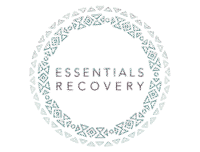Recovery from addiction is not just a physical or medical journey—it is deeply emotional and social. One of the most transformative elements in the recovery process is the presence of peer support. Having someone who has faced similar struggles and understands the complexities of addiction can be incredibly encouraging. Peer support provides a sense of belonging, empathy, and accountability that often cannot be replicated through professional relationships alone.
While therapy, medication, and structured treatment programs are all important, the human connection between people who have shared experiences adds an invaluable layer of healing. Peer support bridges the gap between clinical care and the real-life challenges of staying sober.
Defining Peer Support in Recovery
Peer support in addiction recovery involves mutual help between individuals who are either in recovery themselves or have successfully maintained long-term sobriety. These peers share their personal stories, offer encouragement, and walk alongside others during the ups and downs of recovery.
Unlike traditional counselors or therapists, peer supporters draw from lived experience. Their role is not to offer clinical advice but to inspire hope, normalize the recovery experience, and model what long-term sobriety can look like. This relationship is grounded in equality and empathy, where each person brings something valuable to the table.
Peer support can take many forms, including one-on-one mentorship, recovery coaching, peer-led group meetings, or informal conversations in support communities. Regardless of the format, the goal remains the same—to foster hope and reinforce that recovery is possible.
Building Trust Through Shared Experience
One of the most significant benefits of peer support is the immediate trust that often forms when someone feels genuinely understood. Addiction can be incredibly isolating. Many individuals in recovery report feeling judged, misunderstood, or dismissed by those who have never experienced substance use disorder firsthand.
When a peer shares a similar journey, it validates the person’s experiences and feelings. That shared background becomes a foundation for trust, which is essential for opening up and engaging meaningfully in recovery. Someone who has navigated relapse, legal troubles, family tension, or withdrawal symptoms understands the emotional weight those challenges carry.
Knowing that someone else has faced the same obstacles—and found a way to overcome them—can make recovery feel more attainable and less overwhelming.
Encouragement Without Judgment
Addiction often comes with a heavy dose of shame, guilt, and self-criticism. In early recovery, individuals may be hesitant to open up out of fear of being judged. Peer support provides a space where individuals feel seen and heard without the pressure to be perfect.
Peers who have gone through their own setbacks and relapses are more likely to offer compassion rather than criticism. They understand that progress in recovery isn’t always linear and that setbacks don’t define a person’s worth or future.
This nonjudgmental support helps individuals build self-confidence. Instead of dwelling on past mistakes, they begin to focus on what’s possible moving forward. The encouragement from someone who has already walked the path makes the journey feel less daunting and more hopeful.
Reducing Isolation and Loneliness
Loneliness is both a trigger for substance use and a barrier to recovery. Many people with substance use disorders isolate themselves due to shame, fear of stigma, or broken relationships. This disconnection can deepen addiction and make it harder to reach out for help.
Peer support breaks through that isolation. It connects individuals to a community that understands and accepts them. Whether it’s attending a group meeting, texting a sponsor, or joining an online recovery forum, these interactions help individuals feel less alone in their journey.
Knowing that others are navigating similar challenges, and are willing to offer support and encouragement, helps to restore a sense of belonging. That feeling of connection can be a powerful motivator to keep going, even on difficult days.
Strengthening Motivation and Accountability
Staying committed to recovery requires ongoing motivation. While clinical support plays an important role, peer relationships often provide a more informal and accessible source of accountability. A peer supporter may check in regularly, offer encouragement after a tough day, or simply be present to listen when someone needs to talk.
These relationships help reinforce the idea that someone else cares about your progress. The presence of peer support can reduce impulsive decisions and help individuals stick to their recovery goals.
Seeing someone else successfully navigate recovery can also be incredibly motivating. It shifts the focus from fear to possibility. Rather than thinking, “I’ll never get better,” a person may start to believe, “If they did it, maybe I can too.”
Peer Support in Group Settings
Many recovery programs integrate peer support into group settings such as 12-step meetings, SMART Recovery, or other peer-led sessions. These environments offer an opportunity for individuals to share openly, learn from each other, and practice communication skills.
Group support creates a sense of solidarity. Listening to others’ stories can help participants gain perspective, feel less alone, and even recognize patterns in their own behavior. The group dynamic fosters accountability and consistency while celebrating milestones and encouraging mutual growth.
These meetings also help people practice social skills in a safe and supportive environment—skills that are often diminished or damaged during active addiction. Regular attendance builds routine, stability, and connection.
Peer Recovery Coaches and Mentors
Some peer supporters take on more formal roles as recovery coaches or mentors. These individuals may be trained to provide structured support, help set goals, and assist with navigating challenges like housing, employment, or legal issues. While not a substitute for clinical treatment, peer recovery coaches offer practical advice and real-world insights based on their own recovery journey.
Mentorship can be especially impactful for those just beginning their recovery. Newcomers often feel overwhelmed by the process, and having a mentor who has “been there” makes the journey less intimidating. Coaches and mentors act as role models and walking examples of what long-term recovery can look like.
Their presence can make the difference between giving up and pushing forward.
Long-Term Support Beyond Treatment
One of the challenges of recovery is maintaining sobriety after formal treatment ends. Peer support offers an ongoing source of encouragement that often continues long after clinical programs conclude. In fact, many people find that peer relationships become even more important as they reintegrate into daily life.
Peers can help navigate job stress, social pressures, and other real-world triggers. Whether it’s a quick phone call, a coffee meetup, or a group check-in, these moments of connection reinforce the commitment to recovery.
Staying engaged with peer support long-term helps individuals maintain a sense of purpose, community, and growth. It becomes a lifelong network of strength and shared wisdom.
Giving Back Through Peer Support
One of the most rewarding aspects of peer support is the opportunity to give back. Many individuals in recovery eventually choose to support others as sponsors, mentors, or group facilitators. This role reversal is empowering and healing in itself.
Helping others reinforces one’s own recovery while offering a sense of purpose and fulfillment. It also serves as a reminder of how far one has come. By becoming a source of strength and guidance for someone else, individuals continue to grow in their own sobriety.
This cycle of mutual aid is what makes peer support so powerful. It’s not about hierarchy or perfection—it’s about showing up, sharing experiences, and walking the path together.
Integrating Peer Support into Recovery Programs
Many treatment centers now incorporate peer support into their recovery models. This might involve hiring peer support specialists, offering peer-led workshops, or connecting clients with sponsors in the community. Programs that include peer support often report higher levels of engagement, better retention, and more positive outcomes.
Integrating peer support into treatment helps humanize the recovery process. It reminds individuals that they are not alone, not broken, and not beyond help. Instead, they are part of a larger community of people committed to healing and growth.
Treatment providers who embrace peer support create an environment of collaboration, empathy, and empowerment—an environment where recovery is not only possible but sustainable.
A Foundation of Hope and Healing
At its core, peer support is about hope. It is the simple, powerful belief that change is possible—and that no one has to walk through recovery alone. Whether through shared laughter, honest conversations, or the quiet reassurance of being seen and heard, peer support brings light to even the darkest moments.
In a world where stigma often surrounds addiction, peer support offers understanding. In a journey filled with challenges, it provides encouragement. And in moments of uncertainty, it reminds us of what’s possible when people come together to heal.
Recovery is never easy, but with peer support, it becomes something else entirely: a shared journey marked by courage, connection, and lasting transformation. Call us today at 855-509-1697.



